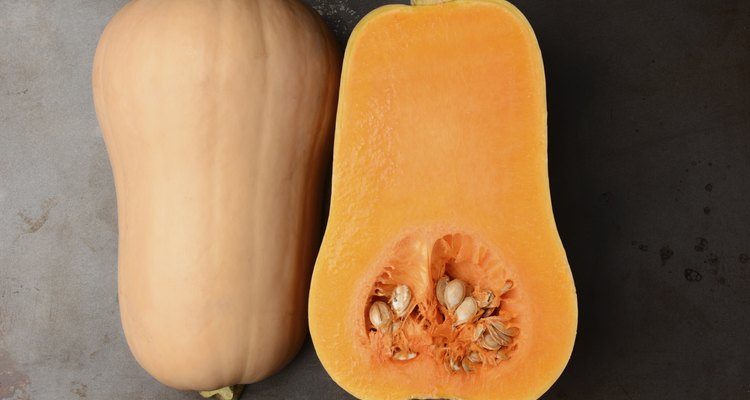
Scukrov/iStock/Getty Images
Butternut squash seeds may not be as familiar as pumpkin seeds, but they have comparable nutrition and flavor. They are nutty and fibrous, and contain protein and heart-healthy fats. Butternut squash seeds are best roasted and consumed by the handful as a snack, or added to cereals, breads and trail mixes.
Butternut Squash and its Seeds

The butternut squash is shaped like a large pear with tan skin and light-orange flesh, as described by World's Healthiest Foods. The flesh contains plentiful vitamin A and vitamin C, but the seeds contain more protein, beneficial lipids and ash, defined by the University of Idaho's agricultural division as a food's total mineral matter. The seeds themselves are off-white, tapered ovals under an inch long.
General Nutrition

All Recipes' preparation of one cup of roasted butternut squash seeds with olive oil and salt has 216 calories, 8.5 g protein, 19.2 g fat, no cholesterol, 297 mg sodium and 6.1 g carbs, 1.3 g of which is fiber.
Butternut squash seeds are rich in calcium and zinc, and All Creatures lists one cup as having 285.4 calories, 11.87 g protein, 12.41 g fat, 34.4 g carbohydrate and 2.43 g ash. The seeds contain nine minerals, 13 vitamins, 18 amino acids and three fats.
Protein, Fat and Carbohydrate
Butternut squash seeds are a good source of protein, with 11.87 g. According to All Creatures, the protein in the seeds is made up of 18 amino acids, with the top six being glutamic acid; arginine; aspartic acid; leucine; and lycine. The seeds' 12.41 g fat per cup is predominantly composed of heart-healthy monounsaturates and polyunsaturates, with no cholesterol. The carb count in butternut squash seeds most likely approximates pumpkin seeds' carb count of 34.4 g per cup, according to the Calorie Counter.
Vitamins and Minerals
According to All Creatures, the vitamin and mineral tally for a cup of butternut squash seeds is: vitamin A, 39.68 IU; folate, 5.76 mcg; vitamin C, .192 mg; niacin, .183 mg; pantothenic acid, .036 mg; riboflavin, .033 mg; potassium, 588.16 mg; magnesium, 167.68 mg; calcium, 35.2 mg; and iron, 2.118 mg. The Calorie Counter states that this is 12 percent of your daily iron requirement.
Recipes for Roasted Seeds

All Recipes and Nourishing Days both offer a basic recipe of one cup seeds, 1 to 2 tablespoons olive oil, and 1/2 teaspoon salt. After rinsing and drying the seeds overnight on a baking pan, sprinkle with olive oil and salt. Roast at 250 to 350 degrees for one hour, or until they are crisp.
All Creatures recipe book adds a twist, replacing the salt with hot sauce. Hot sauce contains capsaicin, a compound that gives peppers their heat and also desensitizes pain receptors in your body, according to Connecticut College's Neurobiology of Disease division.
Related Articles

Nutrition Facts for Tootsie Rolls
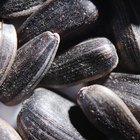
How to Make Flavored Sunflower Seeds
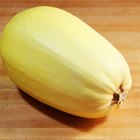
Calories in Spaghetti Squash Seeds
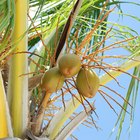
Which Nuts Are Alkaline Forming?

What Foods Provide Calcium D-Glucarate?

How to Lace Nike Air Shoes
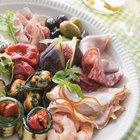
How Many Calories in Chopped Antipasto ...

Nutrition Information for Nabisco Teddy ...
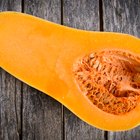
Nutritional Value of Acorn Squash Seeds
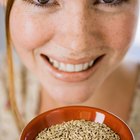
What Plant Do Caraway Seeds Come From?

What Are the Ingredients in Proactiv?
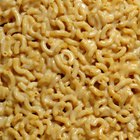
List of Kraft Foods

Polyester Vs. Cotton Socks

The Ingredients in Jergens Naturals
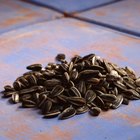
How to Remove Salt From Sunflower Seeds
How to Salt and Dry Pistachios
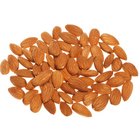
How to Cook Raw Almonds
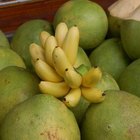
Foods From Rainforest Plants
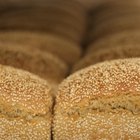
Types of Sesame Seeds

Premium Saltine Crackers Nutrition
References
Resources
Writer Bio
Based in New York City, Fiona Bayly writes about running with a focus on health, nutrition and training strategies for athletes from beginner to professional. She is an avid triathlete, former New England Scholastic Cross Country champion and current member of TeamUSA's age-group championship team in the sport of Aquathlon.
Photo Credits
Scukrov/iStock/Getty Images